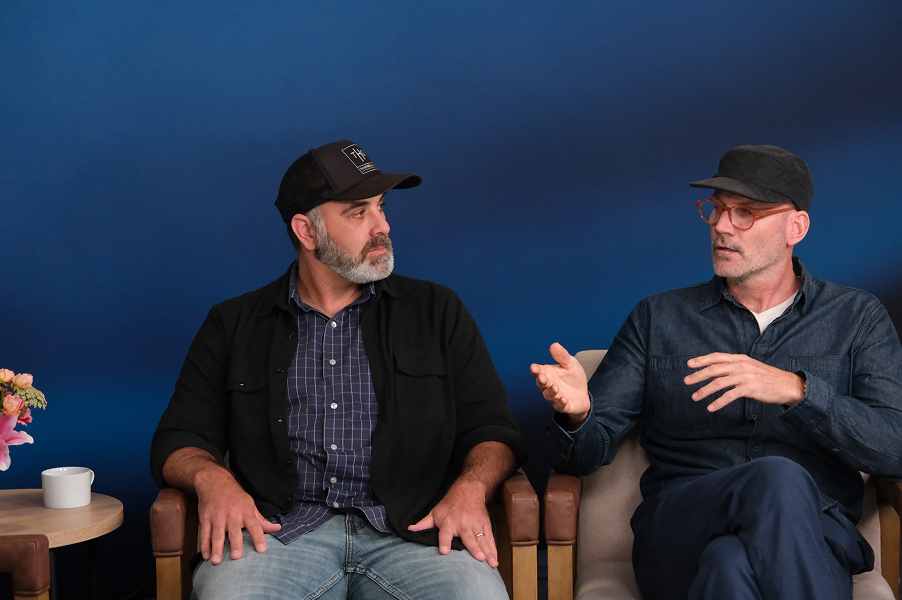August 4th, 2025
3 min read

Kim Fisher Warren has worked in technology for about 25 years, at some of the biggest companies and some of the smallest startups. At Apple, Intel, Cisco and Verizon, she held roles such as strategy and sales, and she’s been tracking AI since it was known as machine learning and big data analytics back in 2012. For the past year, she has been focused exclusively on AI.
Zohar Babin is Chief Business & Technology Officer at Kaltura, a company that provides AI-infused, video-first customer and employee digital experiences that skyrocket engagement, boost collaboration and drive business results.
Babin and Fisher Warren spoke to us about how businesses can harness AI to propel their organization forward.
Bridges and Barriers
From healthcare to finance, government to infrastructure, every sector is feeling the impact of AI. What we’re witnessing today is nothing short of a revolution on par with the internet boom of the late 1990s. AI is changing the very DNA of how we work, interact and make decisions.
One of the most exciting developments is AI’s role in transforming video content. Babin points out that AI-powered video experiences are taking corporate communication, employee training and customer engagement to new heights. Personalized video AI is enabling industries like wealth management in banking, patient education in healthcare, and hyper-targeted marketing campaigns to tailor to individual customers.
Imagine receiving a daily personalized video from your wealth advisor about what’s happening in the markets, or from a healthcare provider with treatment recommendations, based on your health data. Babin says AI’s ability to deliver such highly personalized, scalable experiences is a game-changer for industries that rely on trust, information and relationships.

“Video AI fills the gap where in-person meetings fall short – but it also enhances the human connection by making those interactions scalable,” says Babin. “So even in a digital-first world, customers still feel valued and heard.”
Despite AI’s undeniable potential, there’s still considerable resistance in many organizations, often rooted in a fear that AI will replace human jobs. But Fisher Warren and Babin point out that the reality is far different: AI isn’t about replacing people. It’s about enhancing human productivity and creativity.
“AI is here to free up human talent from repetitive tasks, not to replace them,” explains Fisher Warren. “By automating the mundane, employees can focus on what truly matters: creative problem-solving, innovation and strategy.”
Companies must proactively embrace AI, integrating it into their workflows instead of waiting for a perfect moment. As industries evolve, so too must security, compliance, and business teams. AI is not a one-size-fits-all solution, says Fisher Warren, and it requires a thoughtful integration strategy to ensure maximum benefits without compromising on safety or quality.
“The more your organization is upskilled—and the more it feels not just open, but empowered to use this technology—the faster it will evolve and begin to reap the benefits.”
Zohar Babin, Chief Business & Technology Officer of Kaltura
AI in Society
With AI becoming such a core part of the business ecosystem, a growing talent gap has emerged. However, this is also where AI can be a force for democratization. AI is accessible on a global scale, offering opportunities to talented individuals from diverse backgrounds. Companies should view AI not only as a skill to recruit externally but as an opportunity to upskill their existing workforce.
“AI won’t make people lazy,” says Fisher Warren “Just as calculators didn’t make people bad at math, AI will empower people to innovate, unlock efficiencies, and solve problems that were previously unimaginable.”
As AI becomes more embedded in the corporate world, new leadership roles are emerging to guide organizations through this transition. One of the latest trends is the creation of the VP of Corporate AI, often working under HR, whose role is to drive the integration of AI into every aspect of the business.
“Every business leader today must think like a Chief Product Officer of AI,” says Babin. “If you don’t understand how AI can transform your operations, customer experience, and strategic direction, you’re not going to stay ahead of the competition.”
The companies that begin adopting AI early – integrating it into their product development, business strategy, and customer interaction models – are the ones poised to outpace their competitors. Those who wait may find themselves playing catch-up in a rapidly evolving world.




